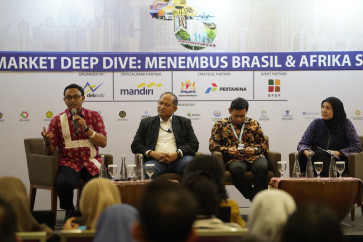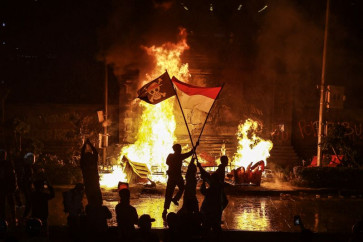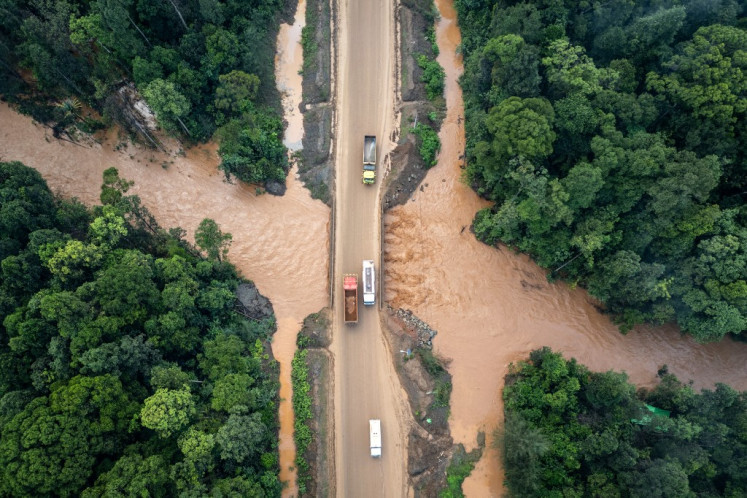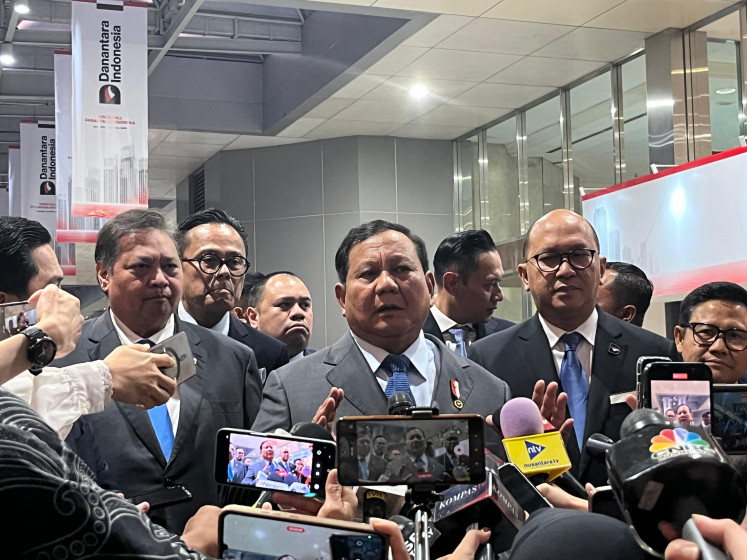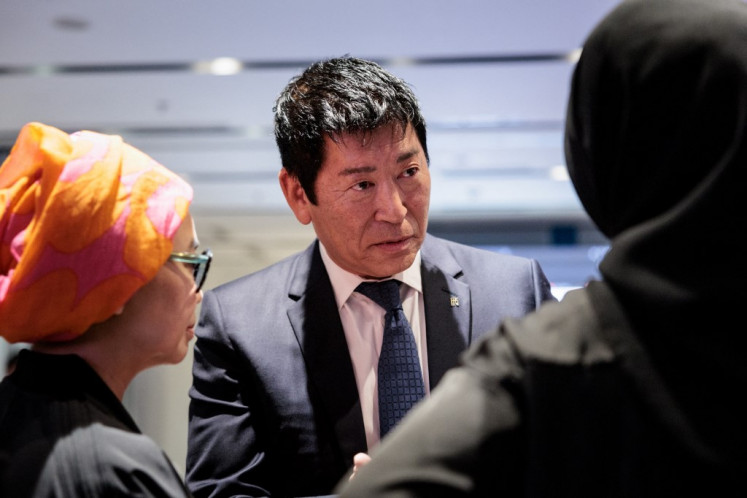Popular Reads
Top Results
Can't find what you're looking for?
View all search resultsPopular Reads
Top Results
Can't find what you're looking for?
View all search resultsCommentary: How good or how bad is the gasoline we burn?
Now that the government has raised the prices of the two main fuels for transportation, gasoline and diesel, the time is ripe for Indonesia to shift the debate about the fuel that we burn, from the overarching obsession with price to the question of quality
Change text size
Gift Premium Articles
to Anyone
N
ow that the government has raised the prices of the two main fuels for transportation, gasoline and diesel, the time is ripe for Indonesia to shift the debate about the fuel that we burn, from the overarching obsession with price to the question of quality.
No one, or at least very few people, in this country bother asking: how good, or rather how bad, is the gasoline that we burn? The answer, according to the Committee for the Phasing Out of Leaded Fuel (KPBB), is that not only are we burning more fuel than we need to, but we are also burning it inefficiently.
On top of the higher costs that the economy has to shoulder because of this inefficiency, there are hidden costs from car emissions in terms of the impact on the health of the people and on the environment through the greenhouse effect. Discerning motorists will tell you that with the low-grade gasoline most of us still fill our cars with, we may end up paying more in terms of maintaining and servicing the vehicles.
After this week's 30 percent increase in gasoline prices announced by President Joko 'Jokowi' Widodo, the government still has to fork out trillions of rupiah in fuel subsidies.
Indonesians are still paying less compared with motorists in most other countries in East Asia, except perhaps Malaysia and Brunei. The price of the 'premium' gasoline (octane 88 fuel), the lowest grade sold at gas stations, which enjoys a government subsidy, was raised toRp 8,500 (77 US cents) a liter.
The narrower gap with the unsubsidized 'super' (octane 92 fuel) sold as Pertamax at Pertamina gas stations, which retails at around Rp 10,500 a liter, should be incentive enough for motorists to switch to the higher grade, as it makes economic sense.
But it is hard for Indonesia to seriously move to more efficient fuel use, even with government encouragement through various policies, for as long as the focus of the nation is still on how much we pay for our gasoline and not on the quality.
The debate in the run-up to Monday's announcement focused on the price, with everyone seemingly obsessed with keeping prices as low as possible, at any quality. Even the ensuing protests will all be about the price.
But are we really getting it cheap? We get exactly what we pay for. We get poor grade gasoline for the price we pay, certainly not more, but given all the hidden costs, we probably get a lot less than we think.
KPBB Executive Director Ahmad Safrudin, in a seminar on fuel efficiency in Jakarta last week, said the government always referred to the international price of oil that Indonesia has to pay in calculating the subsidies, but the quality of gasoline sold at gas stations hardly matches the global standard.
This is a deception, according to Safrudin, whose organization successfully led the national campaign for the elimination of lead in gasoline.
Indonesia is one of the few countries in the world that still sell octane 88 fuel. Most other countries have gone on to octane levels higher than 90. Pertamina has argued that the move to a higher octane would be impossible under the current subsidy scheme.
Politicians understandably want to be seen as championing cheap fuel, but motorists are caught in the same spirit of demanding the cheapest fuel possible, never mind the consequences for health, the environment or their engines.
Whether buying or selling a car, no one asks or raises questions about the emission level. Instead, the issues that clinch sales normally are the price, the resale price and the mileage (which is also determined to a large extent by the price of the gasoline).
Even the government's low-cost green car (LCGC) scheme, launched in 2014, stipulated the minimum mileage a car should have, but not the maximum emissions.
Indonesia has already put in place policies and regulations that require fuel suppliers, including Pertamina, and car manufacturers to move to higher-grade fuel, with plans even to move up to Euro 4-standard gasoline.
Gaikindo, the Association of Indonesian Automotive Manufacturers, has said that most cars sold in recent years are designed for the higher-grade gasoline, but motorists have ignored the recommended type of fuel, opting for the cheaper low-grade option.
Axel Friedrich, a German expert on car emissions and technology, told the KPBB seminar that the low-grade gasoline that Indonesian motorists use would result in higher emissions.
In Europe, the government regulation setting lower emission levels for cars at first met stiff opposition from automakers, who argued that it would be prohibitively expensive. A few years later, however, manufacturers not only have complied, but they were also making brisk sales of cars with the lowest emission levels.
Regulators, fuel suppliers and carmakers are ready to take Indonesia to the level of higher-grade gasoline. The nation has everything to gain and almost nothing to lose.
The onus, then, is on politicians and motorists to start asking the right questions.
______________
The writer is senior editor of The Jakarta Post



